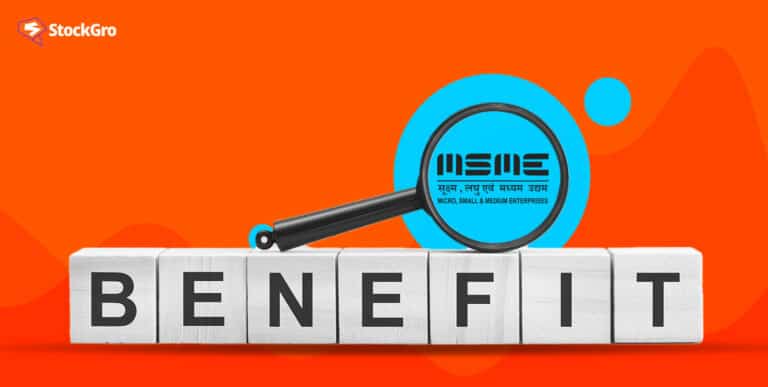
An essential initial move towards a positive outcome in the realm of business possession is getting adequate subsidizing. Exploring the world of finances and loans might be scary. But it is essential for entrepreneurs and businesses. Microloans and business credits are conspicuous roads for acquiring capital among the heap of choices that are accessible. Properly using these with your business goals can help achieve optimum results.
Understanding the contrasts between these two loan choices and using sound judgment to plan a proper financial route is important.
An overview of microloans and business loans
To comprehend the contrast between microloans and business credits, understanding both importance and features is first fundamental.
Microloans
Small scale loans are referred to as micro loans. These are usually given to people or small businesses who might not be eligible for conventional bank loans. These loans are distinguished by their comparatively small loan amounts. The amount frequently falls between a few hundred and a few thousand rupees. Microloans are designed to help entrepreneurs start or develop their undertakings.
Micro loans are essentially of two kinds. Personal micro loans are intended for people who need money for individual projects like beginning a small business. It can be for buying equipment or paying unforeseen bills. Business Micro Loans are ideal for small businesses. These loans provide funds for a range of uses. This includes different purchases, such as buying merchandise or launching marketing initiatives. It can also be used to recruit more employees.
Also read: Bankruptcy recovery: How financial literacy can help you start fresh?
Microloan: main features
The key features of micro loans are:
- Minimal Collateral Requirement: These loans require low collateral. It makes them accessible to individuals and businesses with minimal assets.
- Flexible Eligibility Criteria: Microloans require fewer eligibility criteria. Lenders do not consider credit history. Things like the credibility of the business and the character of the borrower are considered.
- Quick Approval Process: Micro loans often have faster approval processes than conventional loans. This allows borrowers to access funds swiftly.
- Financial Education and Support: Many microlenders provide additional support services. It can be financial education and mentorship. This form of assistance is offered to help borrowers succeed in their ventures.
Business loans
Business loans are also sometimes called commercial loans. These are forms of finance designed significantly to help established companies with their capital requirements. Banks and credit unions offer these loans. It can also be availed from alternative lenders. Business credits are essential for supporting the scope of an organization. It can go from limited day-to-day tasks to critical undertakings.
Business loans are of three kinds. Terms loans consist of taking out a large sum of money. This must be taken care of over a set period of time. Credit lines give organizations admittance to a decent measure of cash they can utilize when required. SBA Credits are Government-upheld advances planned to help smaller undertakings.
Business loans: main features
The highlighting features of business loans are:
- Greater Borrowing Limitations: Business loans have higher borrowing limitations than microloans. It makes them appropriate for more enormous expansions and investments.
- Structured Payback Terms: Business loans frequently feature fixed interest rates and structured payback schedules. It gives borrowers stability and predictability.
- Requirement for Collateral: To give lenders more security in the event of default, many business loans require collateral. It can include real estate and machinery. It can also include inventory.
- Established Credit History: Traditional lenders frequently give more weight to a company’s credit history and financial performance when assessing loan applications. Businesses must show that they have a history of trustworthy financial management.
Also read: Financial Literacy and Small Business Success: Essential Skills
Inspecting the difference between microloans and business loans
The following sections explain micro-loans vs. business loans disparities.
Loan amount
Micro loan finance has a limit on loan amounts. It can generally fall between fifteen thousand and one lakh rupees. This kind of loan is intended to provide small business owners, entrepreneurs, and startups with minimal capital in response to their restricted funding needs.
Business loans come in a wide range of amounts. It usually ranges from fifty thousand to fifty lakhs. These loans are ideal for well-established companies that need a lot of money. These companies use more significant amounts for things like development plans and acquiring pricey equipment.
Loan purpose
The most popular application for microloans is the acquisition of goods. This helps small enterprises with working cash needs and initial establishment costs. These loans may be intended for small business owners and homegrown startups.
On the other hand, business loans are flexible and can be used for many different things. It can be for hiring staff or expanding a firm. Business loans are also used for refinancing current debt and managing inventory along with purchasing equipment.
Repayment periods
Microloans have shorter repayment durations, typically a few weeks to a few years. The borrower will be able to return the total loan amount plus interest more quickly within a shorter period, enabling microloan providers to recycle funds to help other firms.
Business loans have longer terms. Longer loans could have smaller monthly payments. This simplifies companies’ managing their cash flow and maintaining a profitable operation.
Eligibility requirements
Microloan programs frequently accept more accommodating requirements, allowing entrepreneurs with lower credit scores to apply. Furthermore, several microloan providers provide extra assistance to minority-owned and economically underprivileged firms.
The eligibility requirements for conventional business loans are more stringent and include solid financial documents. Business loans require a perfect record as a consumer and a guarantee of more extensive credits. If you wish to know how to get a business credit, it is fundamental to consider these variables.
Interest rate
Because processing small-sized loans entails more extraordinary administrative expenses, microloans are available at a higher interest rate. While interest rates on business loans are often competitive, they are more advantageous for companies with excellent credit scores and sound financial positions.
Also read: Navigating the legal maze: The consequences of personal loan default
Conclusion
Mico loans and business loans are helpful financial tools. Business advances and micro-loans are both primary money sources for new businesses and entrepreneurs. They are not the equivalent in regards to getting money. They have different qualification necessities and reimbursement terms also. By monitoring these differentiations and assessing your undertaking’s remarkable prerequisites, you can conclude which sort of loan will best help your organization’s development and accomplishment.

